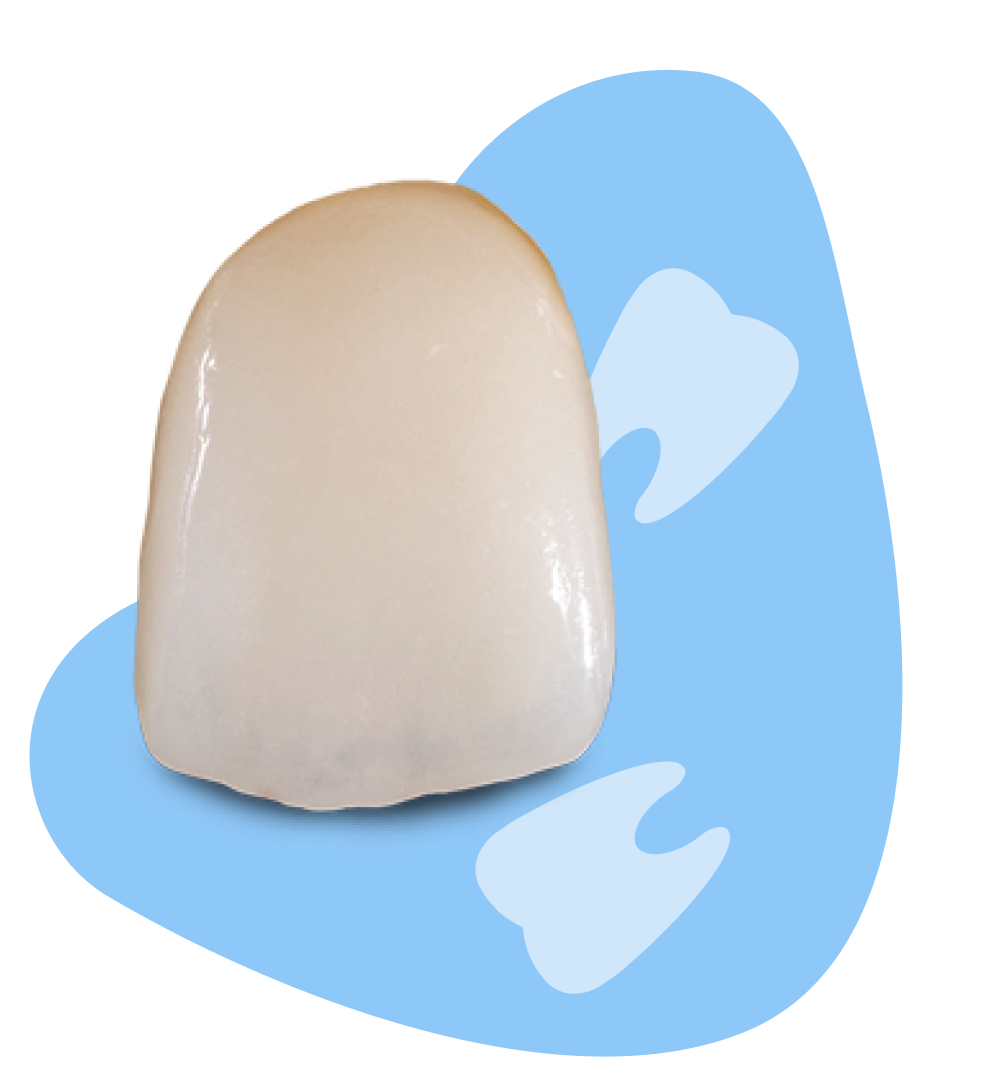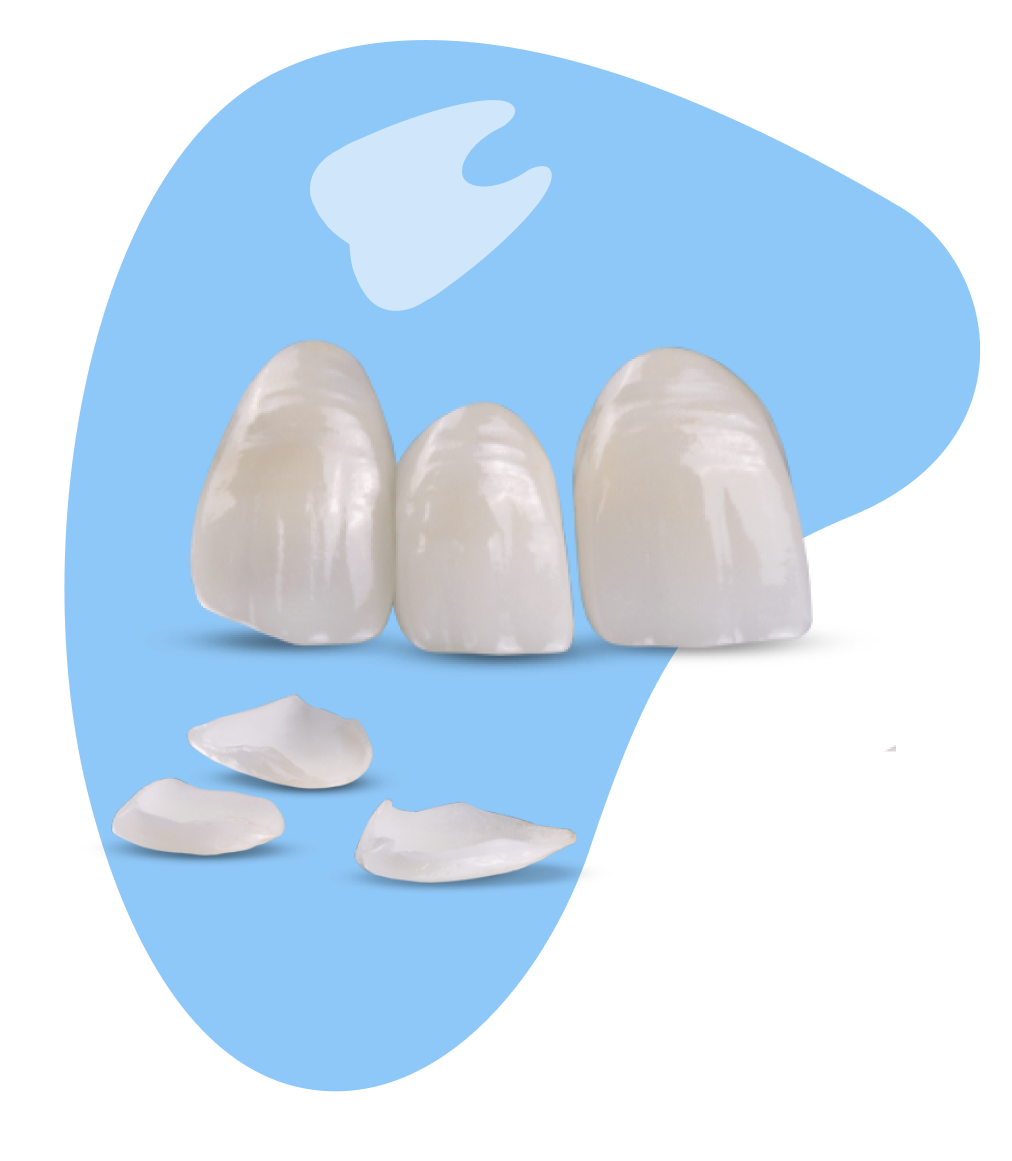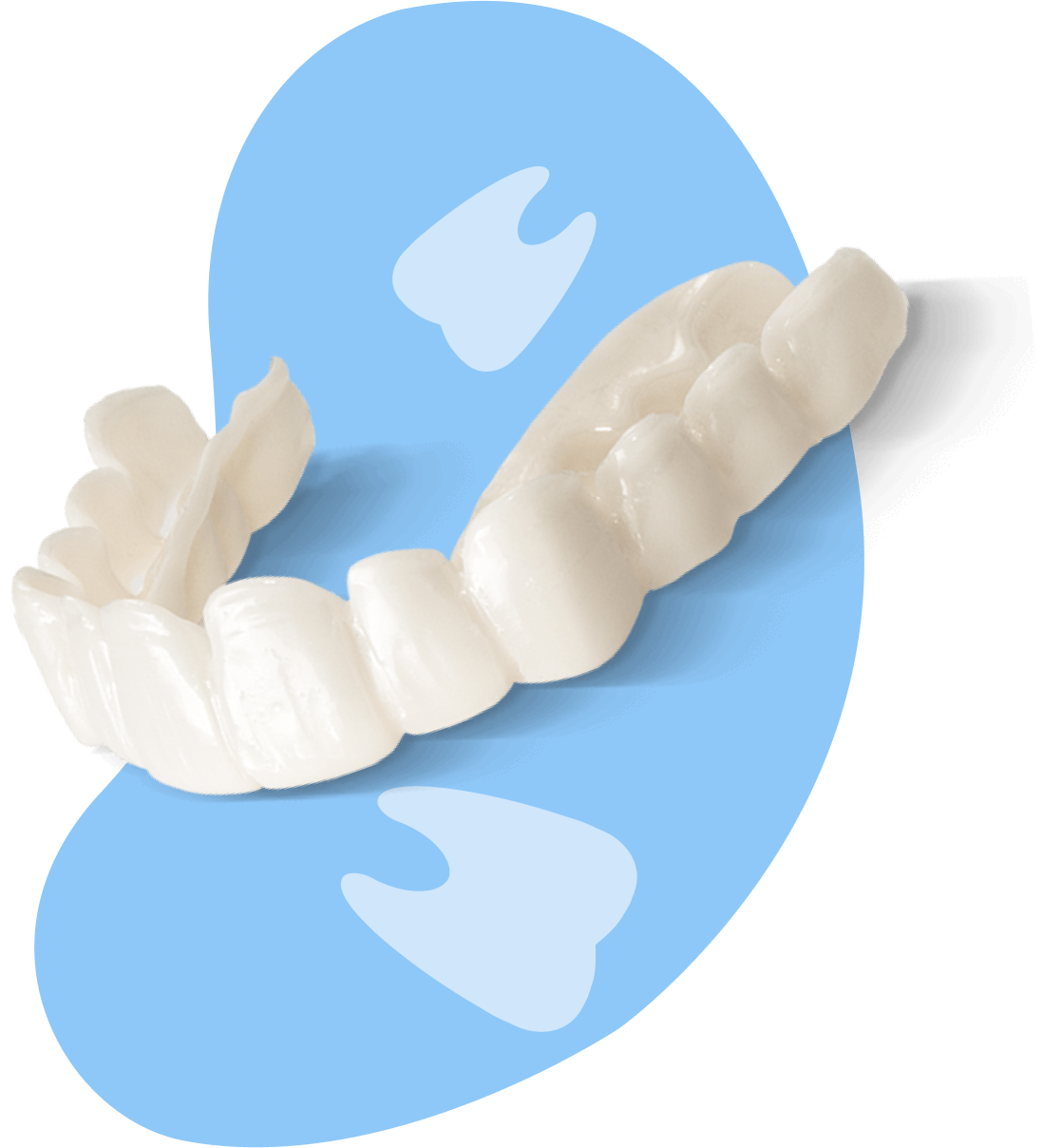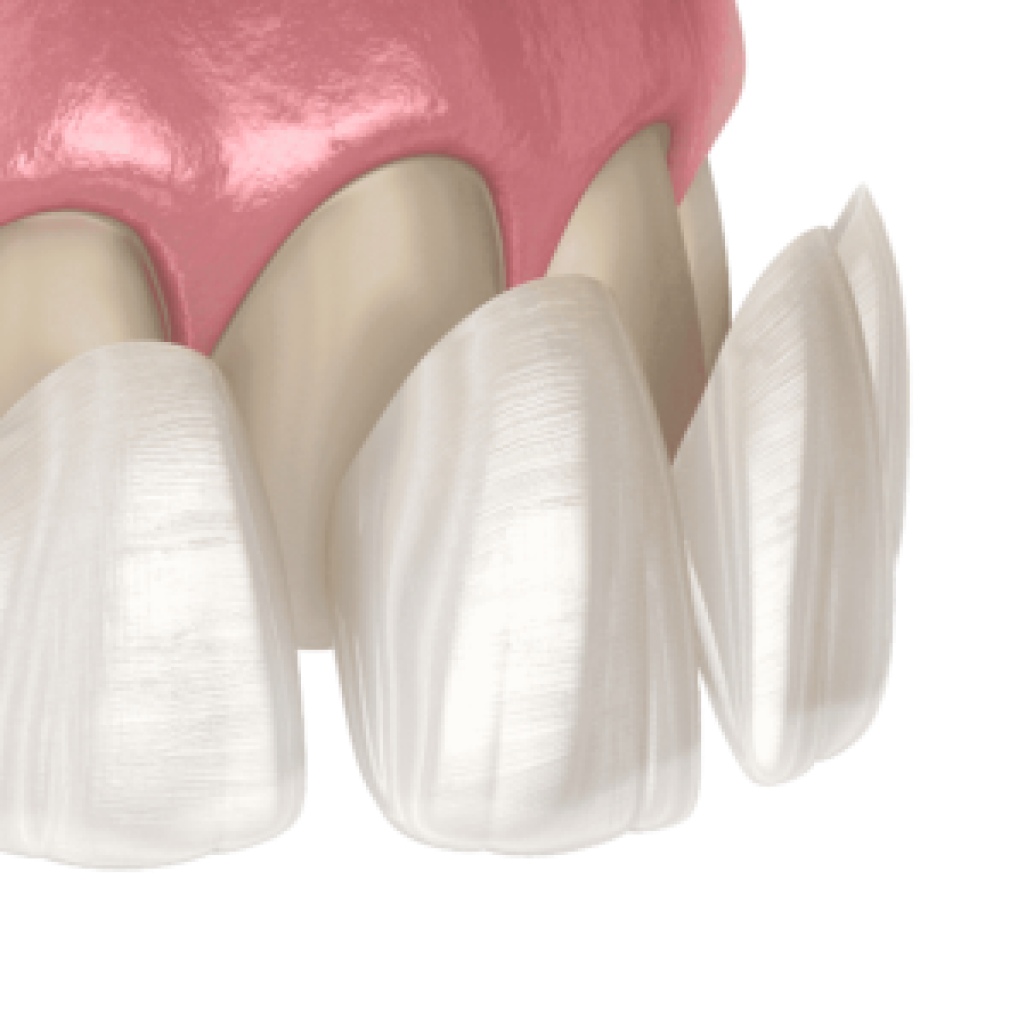What are Veneers?
Dental veneers are thin, tooth-colored shells that are attached to the front surface of teeth to improve their appearance. They’re often made from porcelain or resin-composite materials and are permanently bonded to your teeth.
Veneers can be used to treat a number of different cosmetic concerns, including chipped, broken, discolored, or smaller-than-average teeth.
Some people may only get one veneer in the case of a broken or chipped tooth, but many get between six to eight veneers in order to create an even, symmetrical smile. The top front eight teeth are the most commonly applied veneers.


What are the different types of veneers?
Dental veneers are most commonly made out of porcelain or composite resin and require intensive prep work. But there are also “no-prep” veneers, which are applied through a different process.
Applying traditional dental veneers typically involves grinding down the tooth structure, sometimes removing some of the tooth — even past the enamel. This allows for proper placement, but it’s also an irreversible procedure that can be painful to go through and often requires a local anesthetic.
Tooth reduction depends on your dental concerns and the number of teeth involved. When several teeth are involved, a dentist may order a wax model to show you how the veneers would look.
On the other hand, no-prep veneers may require some tooth preparation or alteration, but these alterations are minimal.
Porcelain veneers
Some dentists will begin by grinding down the teeth and then making an impression of your teeth for the creation of a mold. Then they’ll send the mold out to a lab for the porcelain veneer to be made.
Once the veneer is ready, your dentist can place it on your prepared tooth and cement it in place. Temporary veneers may be used until the permanent veneers come back from the lab.
Meanwhile, other dentists may use CAD/CAM technology so a computer can design the veneer. Your dentist can make the actual veneer right there in the office.
Composite resin veneers
If you choose composite resin veneers, your dentist will etch the surface of your tooth before applying a thin layer of the composite material to your prepared tooth.
Additional layers of composite may be necessary to achieve your intended look. Your dentist will finish by curing, or hardening, the composite veneer with a special light.
No-prep veneers
Instead of removing layers of tooth under the enamel, no-prep veneers only affect the enamel. In many cases, no-prep veneers don’t require local anesthetics or temporary veneers.

What is the difference between veneers, crowns, and implants?
Veneers aren’t the same as dental implants or crowns. Veneers cover only the front surface of the tooth, while crowns encase the entire tooth. Veneers are also thinner than crowns: about 1 mm, compared to 2 mm.
Veneers are less invasive, too. If you need a crown, your dentist will have to file or ground down more of your tooth to prepare it for the crown than would be necessary for the application of a veneer.
Meanwhile, an implant is installed in the bone to replace a missing tooth, and a crown is placed on top of that. It can take several months after the implant is placed for the area around it to heal enough for the replacement tooth to be placed on top.
What are the benefits of dental veneers?
The biggest benefit to veneers is improving the appearance of your teeth, giving you a brighter and more even smile. Dental veneers are often used to treat the following cosmetic occurrences:
Veneers can last for more than a decade, depending on the type of veneer you choose, making them a semipermanent investment that can make you more confident in your smile.

What can Elegant Dental Lab offer to you?
We pride ourselves on the transparent information available to dentists, including details about what type of milling machines are used to fabricate a multitude of crowns, the abutment types available for patients, various denture solutions, and many more services. If you do not find a particular prosthetic or product on our website, a quick call to one of our representatives will most likely confirm that we do carry or perform what your dental office requires.
In addition to the technology visible on our site, our New York based laboratory is constantly updating existing machines, CAD/CAM software, and other applicable items that experience frequent upgrades. Technicians at Elegant Dental undergo training on a regular basis to stay compliant and knowledgeable for the many systems released throughout the year, and we invite any questions your own office may have about what you can do to stay technologically relevant within the field.
Using a new laboratory can be nerve racking, which is why beyond seeing relevant client reviews about our professionalism and product delivery, we invite you to call our offices to see how we can make your first case with Elegant Dental one of many to come. Call 718-375-5999 to hear more information about how easy it is to partner with our dental laboratory.